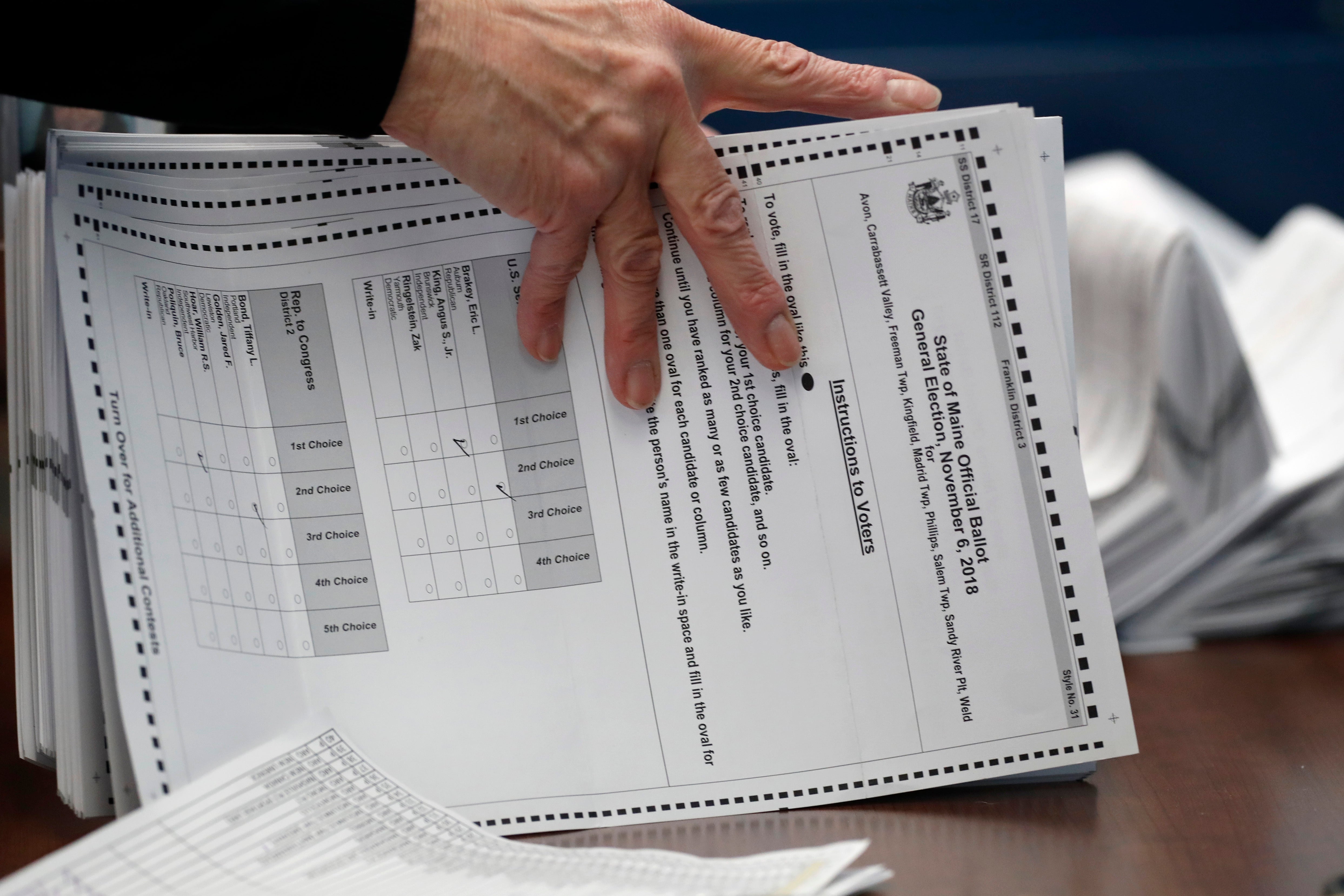Supreme Court turns away Republican appeal on ranked voting
The U.S. Supreme Court has turned down a last-ditch effort by the Maine Republican Party to stop ranked choice voting from being used for the first time in the state’s presidential contest

Your support helps us to tell the story
From reproductive rights to climate change to Big Tech, The Independent is on the ground when the story is developing. Whether it's investigating the financials of Elon Musk's pro-Trump PAC or producing our latest documentary, 'The A Word', which shines a light on the American women fighting for reproductive rights, we know how important it is to parse out the facts from the messaging.
At such a critical moment in US history, we need reporters on the ground. Your donation allows us to keep sending journalists to speak to both sides of the story.
The Independent is trusted by Americans across the entire political spectrum. And unlike many other quality news outlets, we choose not to lock Americans out of our reporting and analysis with paywalls. We believe quality journalism should be available to everyone, paid for by those who can afford it.
Your support makes all the difference.The U.S. Supreme Court on Tuesday turned away a last-ditch effort by the Maine Republican Party to stop ranked choice voting from being used for the first time in the state's presidential contest.
Justice Stephen Breyer rejected the request for the high court to intervene after the GOP sought to delay ranked voting in this November’s presidential election until state voters had the final say through a “People’s Veto” referendum.
The Maine GOP's appeal was filed after the first votes had been cast by overseas voters. Additional ballots were being cast this week as more voters returned absentee ballots, either in person or by mail.
The appeal to the U.S. Supreme Court came after the state Supreme Judicial Court twice rebuffed the Maine GOP.
It focused on whether the Maine GOP collected enough signatures to force a referendum on a law expanding ranked voting to the presidential contest. The appeal contended some of the rules governing the collecting of signatures were unconstitutional.
The GOP contended the Maine Constitution required ranked voting in the presidential race to be delayed if it could show a likelihood of success on a lawsuit seeking to reinstate the referendum.
The ranked voting system, approved by Maine voters in 2016, has become a partisan issue after Republican U.S. Rep. Bruce Poliquin was ousted in 2018 despite collecting the most first-place votes.
Under the system, voters are allowed to rank all candidates in order of preference on the ballot. A candidate who wins a majority of first-place votes is the winner. If there’s no majority winner, then there are additional tabulations in which last-place candidates are eliminated and votes are reallocated to achieve a majority winner.
The voting system is already used in U.S. House and U.S. Senate races in Maine. It isn’t used in state gubernatorial or legislative races because of concerns that it runs afoul of the Maine Constitution.